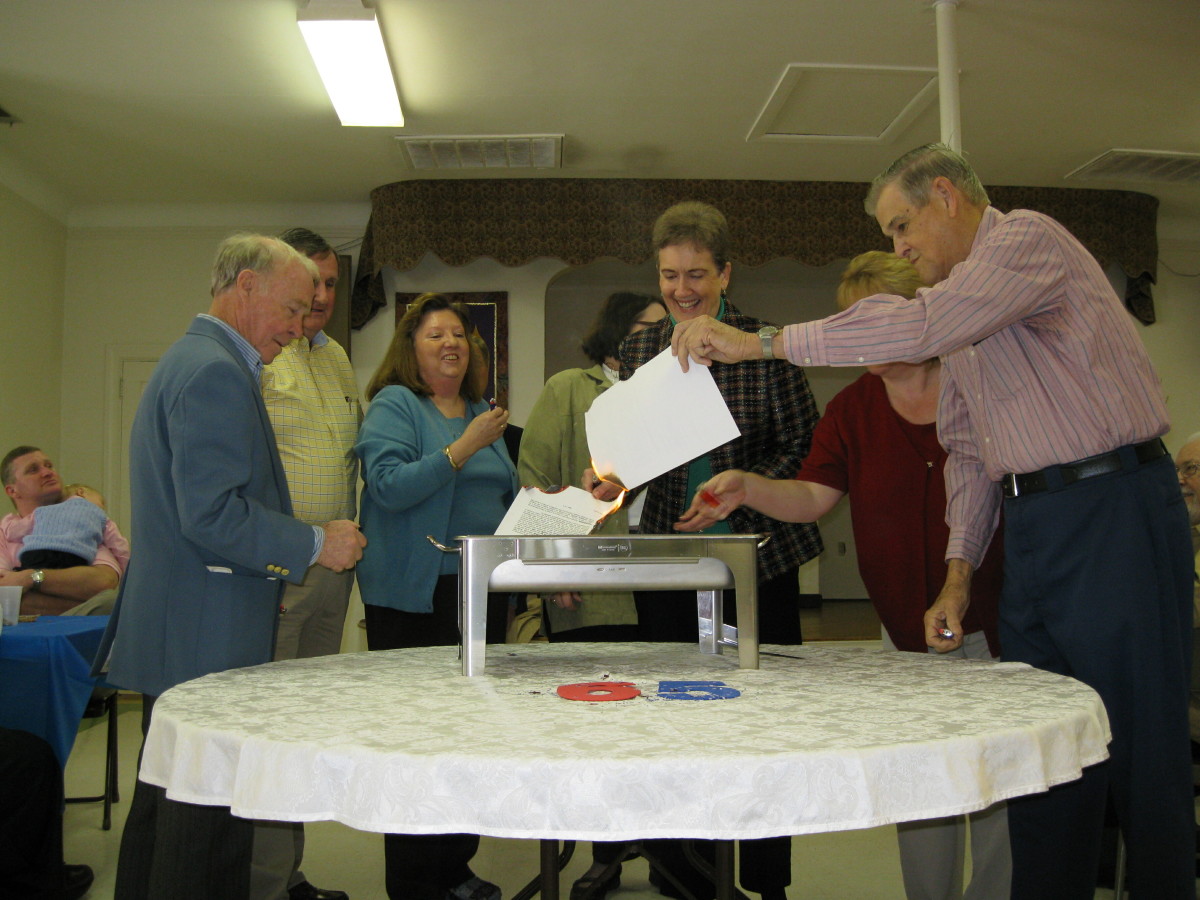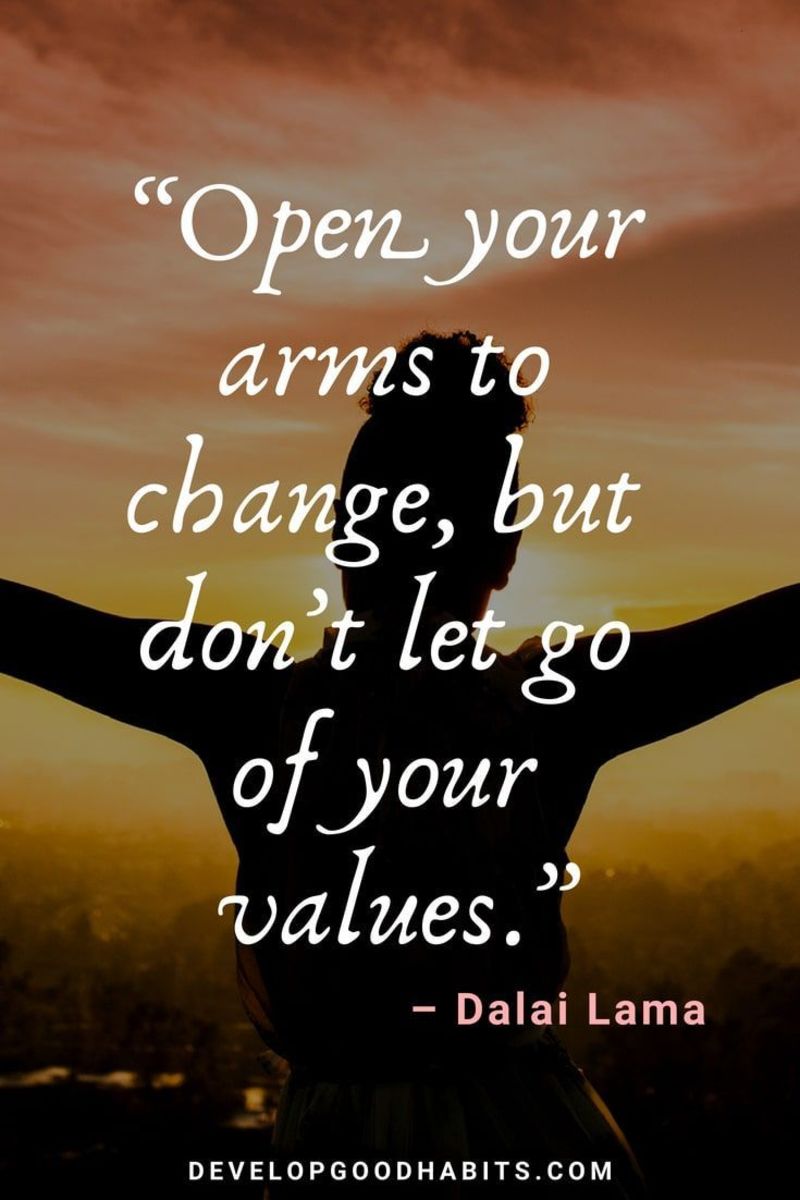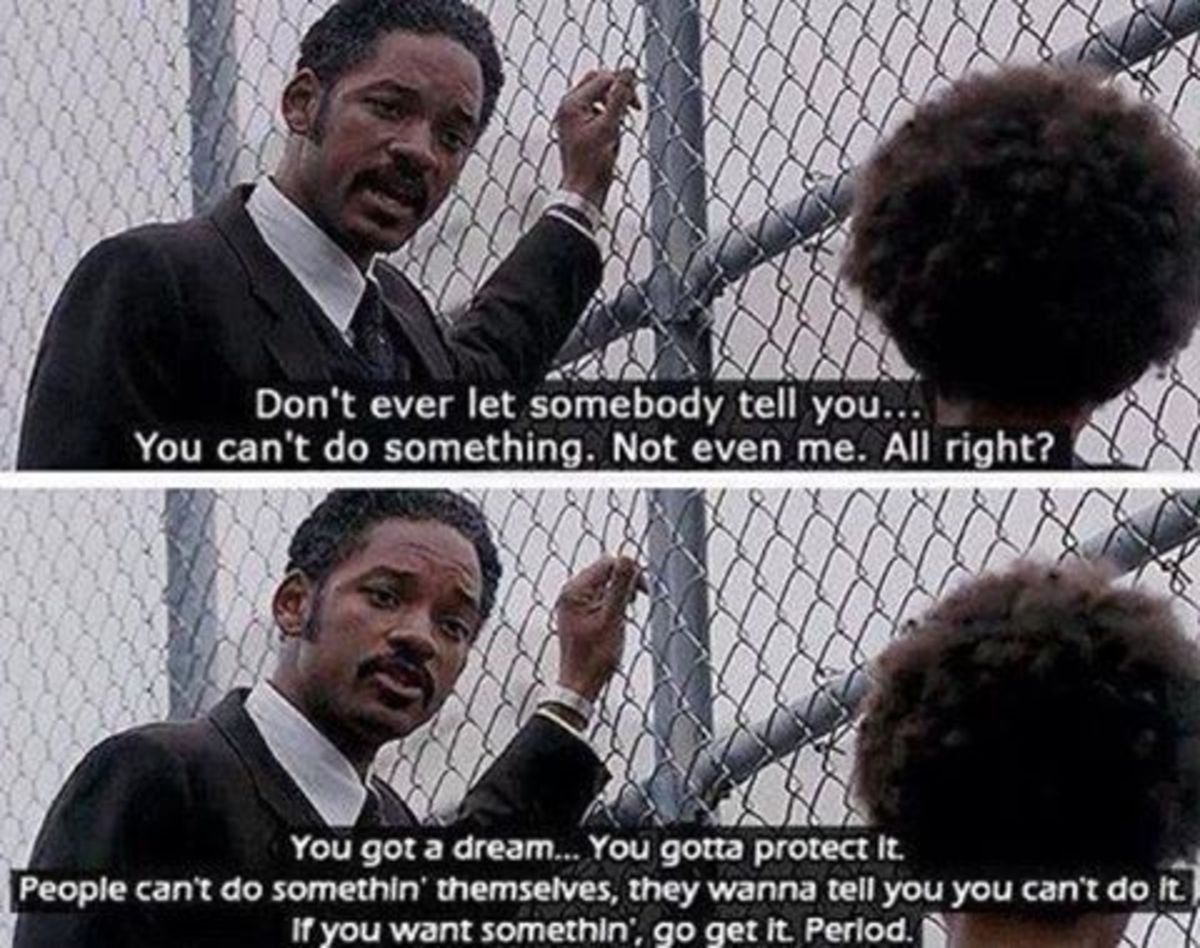Why We Need Change - Why We Hate Change
Why do we have to sometimes change just to be who we really are? When we are trying to be successful or trying to accomplish something in our life, have you ever noticed that one of the first things that happens is that we get told we should not do the thing, or we get asked why we are doing it? And what are we doing it for? Have you ever been a husband or wife in a relationship or someone’s partner and have decided to do something but everyone is telling you not to do it? And they are telling you to leave things the way they are.
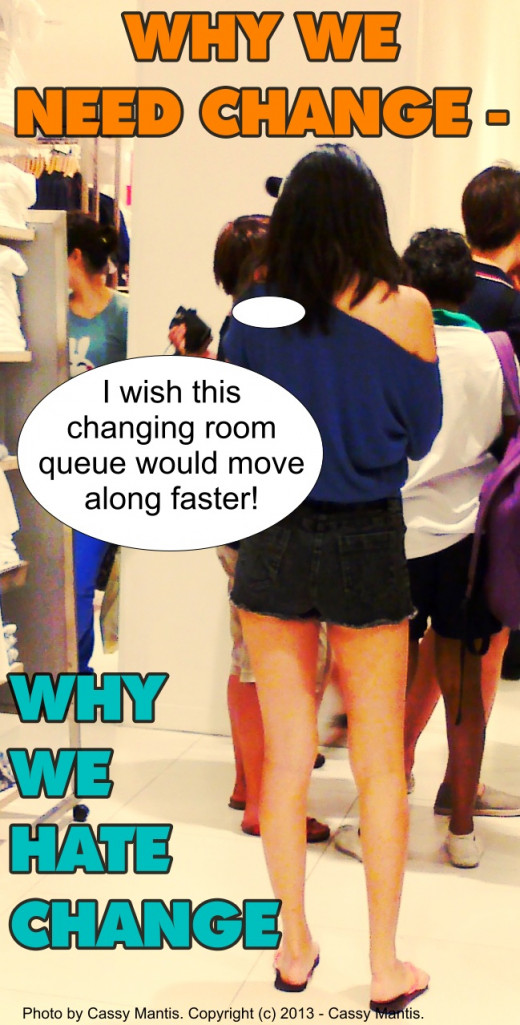
Have you ever read the news or watched TV and seen how some bunch of people are agitating against their government in some far off country, trying to get something done and having to get someone’s attention? Because they are trying to get something changed? What do they all have in common? They are all discovering that people don’t like change. Change can be very precarious. The change business can be intense, challenging, uncomfortable, and can even threaten the status quo in ways many people either don’t want, or just don’t like. The bottom line is – change is seen as bad. Imbalance in things creates change. An imbalance or situation of inequality, or an uncertainty or improbable principle can all cause a desire for change. We can disagree with an idea or ideology and want change as a result. Many things can make change possible. They can be random or ordered.
We are curious creatures, who hate things to change. We hate having to adapt to new things. We hate having to introduce new rules, having to bring in a new system of thinking and new procedures. Human thinking and behaviour works around the concept of “comfort” We become comfortable with a thing and we settle into it and we don’t want it to change. We become very used to it, and we eventually become conditioned by the thing, so that we will do almost anything to keep ourselves in that position. It is a curious inevitability of human behaviour. We are also social creatures, and are part of the pack, so the pack mentality is to all want the same thing. We naturally gravitate towards the stronger group thinking. And thus we arrive at an important concept in human behaviour, group thinking. We tend as people to get things to suit us, to suit the system, and to facilitate our group thinking. It’s almost like having the weather always bow to our whim. Except that of course, the weather does not bow to our whim at all. The weather is a force of nature, it does its own thing.
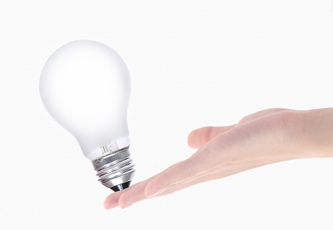
So just why do we have to change just to be who we are? Sometimes, when we have an opportunity to see something new, and we experience the new thing, we make discoveries. Some things happen. They might be good things, because we see the difference in the thing, and how it is better for us or better for others. Or we find it improves things in other ways. We always make a useful discovery in times like this. We then have a dilemma on our hands.
Our dilemma is in what we ought to do about the thing? Should we just observe the change, make a note of it and do nothing, just leaving our own circumstances generally as they are? Or do we take the other option, and decide to adapt that change into our own circumstance or the position of others and gradually introduce the change so as to improve the group circumstances for others and make things better, provided of course that they are willing to allow it?
Seeing change happen somewhere else and seeing how beneficial it can be is often a great experience. It can be an empowering experience. It can be even frustrating to see how by changing, other people and other systems seem to advance and do better than others. Or do better than us, by moving forward in some way. We are all human. We all want things to change if we see the real benefits. Those benefits can be so many things. And all because someone had the smart idea of changing something, and making things better somehow.
So what happens if other people don’t see it the way we do? What if they listen and try to imagine, but they just can’t see the possibilities that we see? What do we do then?
One thing we can do is try better to explain. We can be more patient in telling and stating the thing clearly and concisely, and by being honest about why we see the change as being genuinely better for everyone in the long term. The way or ways of changing people’s positions or circumstances can often be very hard. (This is why we have people called Lobbyists, to do it for us.) And sometimes, we fail to achieve it. Sometimes we just cannot explain or show the benefits of the thing, even though we know it will lead to better things.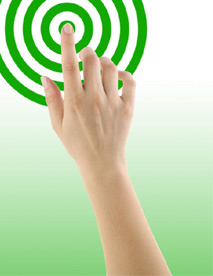
We can all be in agreement about wanting a change when a change is needed, and just as likely, we can all disagree because we can hate a change or just not want the change to happen. Change only happens when people want change to happen. Change only becomes a possibility when our circumstances become so intolerable and so unacceptable that we just cannot carry on with the status quo any longer. Change never happens without consensus. By successfully changing group thinking, we can make change happen. But it only works when we all want it or when enough of us want it. The key to getting change to happen is to seek out those who are not happy with circumstances and by finding those who are disaffected and disenchanted enough to be willing to agree that a change is necessary. There has to be a point or purpose to change. A reason that will make sense, and a benefit that comes with the change, which people can clearly see. Change for no reason will be seen as just a shallow ploy. Real change happens with enough people agreeing that it is needed.
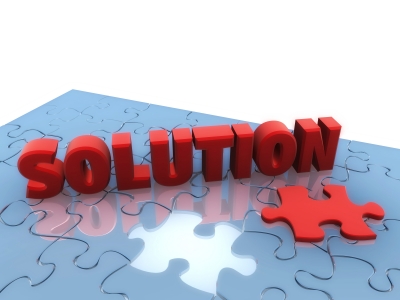
You may find something here that resonates with you in your life or work. It might touch on religion, or perhaps politics. Or you might find it relates to people you know, like family or friends. Change can be associated with divorce, beliefs, our sexuality, it can be about fashions, about art, theater or music. It touches on many human endeavors. The scale of change can be almost infinite. It can manifest itself in so ways. Every single one of us will have experienced different changes, the ones we did want as well as the ones we did not want. And the changes we made no matter how painful they were for us or others. We are all human. We are all driven by the same things.
Understanding the dynamics of how groups think and how change can introduce uncertainty to the group is a fascinating subject, and it can help reveal many things about us. Our insecurities, or fears about things. Our being afraid of things we don’t understand. Change can be our teacher. We can learn from it. A key to change is in learning.
Sending our kids to school, just as we were sent to school as kids ourselves is something we almost take for granted. But yet we put children into a massive new situation where total change occurs, and we can imagine the seismic shift that follows as they discover all these amazing new things. New knowledge, new ways of understanding, new rules to learn. And learning new disciplines. Growth is associated with change. We learn to change.
Growth is a by-product of change. Change is a thing we accept when we help control and organise change. Change is something we agree with when we have at some point undergone that change ourselves. Changing things for them can be good because it was good for us. Teaching and education tells us this. So some change is clearly very good.
There is massive debate over how change ought to happen in the group or in society. Some just force change upon us, while others will try to reason with us, and persuade us gently but firmly. Change is an art. And sometimes it is best left to the experts, or the leaders we agree to have.
As long as it is for our benefit and helps to improve things, change can be good. If we look for moments in times or in people’s lives where change brought about improvement, we can be often consumed with wanting to help bring about change. Get to understand how change affects us all. We cannot escape the clutches of change. It is like a magic bullet that gets us all eventually, even if we dodge and avoid it. Sometimes, just like with the Borg in the TV show Star Trek, “resistance is futile”. Experts who cannot change us quickly and suddenly, will opt to change us slowly over time, even if we refuse to go with the flow. So perhaps we are all affected by change after all. And change will happen no matter what we do. Even if people don’t want to go with the flow, they eventually do, though they may not immediately realize it. Real change happens very slowly.
Text article Copyright (c) 2010 to 2014 Cassy Mantis. All rights reserved.




